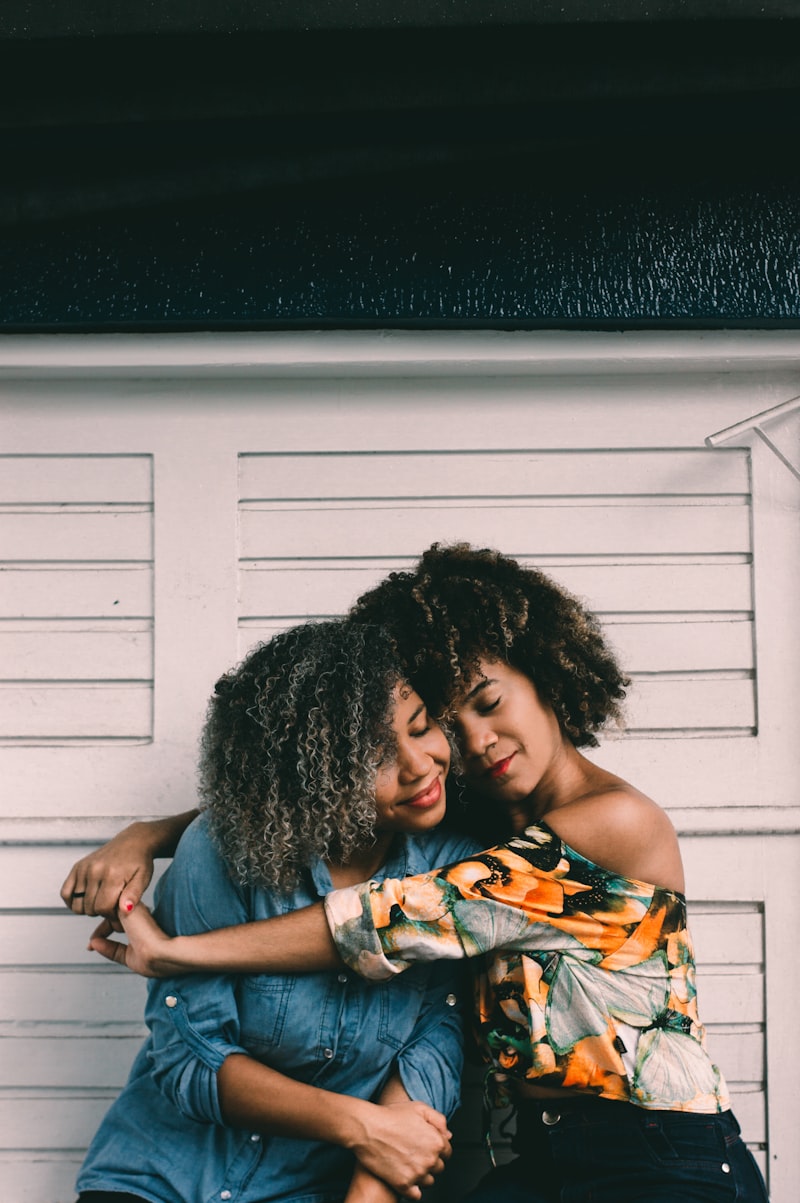How Has Social Media Impacted Women’s Body Image?
Think about it: one minute you’re enjoying a post about the latest fashion trends, and the next, you’re questioning your own appearance. Social media platforms, with their constant barrage of “ideal” body types and beauty standards, can make real-life bodies feel like they’re falling short. These platforms have an uncanny ability to make the extraordinary seem ordinary, nudging everyday folks into comparing themselves to these often edited images.

Moreover, the social media algorithms feed this cycle by showing content that reinforces these beauty norms. Ever noticed how posts with certain body types or beauty standards get more visibility? It’s a self-perpetuating loop that reinforces these standards as the norm.
In essence, while social media connects us and entertains, it also has a powerful influence on how women perceive their bodies. It’s crucial to remember that behind every stunning image, there’s often a lot of editing and filtering. The real beauty is in embracing who we are, without letting the virtual world dictate our self-worth.
Social Media’s Double-Edged Sword: Shaping Women’s Body Image in the Digital Age

But here’s the flip side: the constant stream of curated images and unattainable beauty standards can create unrealistic expectations. The glossy, edited images we see can distort our perception of beauty, leading many to feel inadequate in comparison. It’s easy to get caught in the trap of comparing yourself to someone who seems to have it all together, forgetting that these posts are often carefully crafted illusions.
Moreover, the pressure to conform can lead to a cycle of self-doubt and anxiety. Social media algorithms often prioritize content that garners the most attention, which can mean that posts featuring idealized body types get more visibility. This not only reinforces harmful stereotypes but also makes it challenging for more realistic and diverse body representations to gain traction.
Navigating social media’s impact on body image requires a delicate balance. It’s about recognizing the value of genuine, diverse representations while also being aware of the potential for comparison and unrealistic standards. The digital age offers a unique opportunity to reshape how we view ourselves and others, but it’s up to each of us to approach it with a critical eye and a healthy dose of self-love.
From Filters to Realities: The Transformation of Women’s Body Image Through Social Media
Social media platforms are like a double-edged sword. On one hand, they offer inspiration and a space for self-expression. On the other hand, they often present an idealized version of reality that’s far from attainable. Women today are bombarded with images that have been meticulously curated and edited, leading many to compare their everyday selves with these polished portrayals. The result? A distorted sense of what beauty and success should look like.
Ever wondered how these altered images affect self-esteem? It’s like trying to measure up to a Hollywood blockbuster when you’re just starting out in an indie film. Filters and edits can make everything look flawless, but this isn’t the full story. Behind every ‘perfect’ post is a carefully crafted reality, not always reflecting the person’s true self. This discrepancy can create unrealistic standards, making ordinary people feel inadequate.
The constant exposure to these enhanced images can lead to a growing dissatisfaction with one’s own appearance. If you’re comparing your real, unfiltered self to an image that’s been tweaked beyond recognition, it’s no wonder many struggle with body image issues. This environment can drive a cycle of self-doubt and pressure, pushing individuals to seek out their own ‘ideal’ through extreme measures, whether that’s rigorous workout routines, dietary changes, or further editing of their own posts.
In this digital age, it’s crucial to remember that behind every filter is a human being, complete with their own imperfections and struggles. Social media may offer an illusion of perfection, but embracing our genuine selves is where real beauty lies.
Instagram vs. Reality: How Social Media Distorts Women’s Body Image
Firstly, let’s talk about filters and editing apps. They’re like magic wands that can erase blemishes, smooth skin, and even tweak body shapes. While this might seem harmless, it sets an unrealistic standard. When women scroll through these edited images, they can start to feel that their own natural bodies are somehow less beautiful. It’s like comparing a hand-drawn sketch to a glossy, professionally painted portrait—one is real, and the other is a carefully crafted illusion.
Next up is the “highlight reel” phenomenon. Instagram is a stage where people showcase their best moments—vacations, glamorous outfits, and perfect selfies. But what about the everyday, mundane moments? They’re rarely posted. This creates a distorted view, making it seem like everyone else’s life (and body) is perpetually perfect. It’s like watching a trailer for a blockbuster movie and feeling like your life is a low-budget indie film by comparison.
Moreover, the pressure to conform to these idealized images can lead to unhealthy habits. Many women may feel compelled to follow extreme diets or exercise routines to achieve a body that aligns with what’s seen online. This isn’t just about looking good; it’s about chasing an illusion that’s often far removed from reality.
The result? A cycle of self-doubt and dissatisfaction that’s hard to break. Women are left grappling with the gap between the Instagram ideal and their everyday selves, which can impact self-esteem and mental health. It’s a powerful reminder that while Instagram might offer a glimpse into a curated fantasy, our worth and beauty are far more than pixels and filters.
Breaking the Mirror: The Psychological Toll of Social Media on Women’s Self-Perception
Every swipe and scroll exposes women to a barrage of idealized images. It’s not just about what’s on screen; it’s about how it seeps into our self-view. Those airbrushed photos and curated lives set an impossible standard. It’s as if we’re always measuring ourselves against an unattainable benchmark, leaving many feeling like they fall short.
Think about it: When we see celebrities and influencers with their flawless skin and perfect figures, it’s easy to start questioning our own worth. The more we compare ourselves to these filtered realities, the more we might begin to feel inadequate. It’s like being in a never-ending beauty pageant where the judges are always changing their criteria.
The psychological toll can be severe. Many women find themselves trapped in a cycle of self-doubt and comparison, which can impact self-esteem and overall mental health. The constant pressure to look and live like the people we see online can be overwhelming.
Social media isn’t just about sharing moments anymore; it’s become a stage where our self-worth is scrutinized and judged. And when we constantly see others’ ‘perfect’ lives, it’s easy to feel like our own lives don’t measure up.
The Social Media Paradox: Empowerment or Enslavement for Women’s Body Image?
Social media is like a double-edged sword when it comes to body image. On one hand, it’s a platform where women can find empowerment, celebrate diversity, and connect with communities that uplift them. But on the other hand, it can sometimes feel like a trap, fueling insecurities and unrealistic standards.
Imagine scrolling through your feed and seeing an endless parade of seemingly flawless selfies and perfectly curated lives. It’s easy to feel overwhelmed and doubt your own worth. This constant comparison can make you question whether your body measures up to the so-called ideal. Social media has turned into a mirror that reflects not just our physical appearance but our self-esteem and mental well-being.
But let’s flip the script. Social media can also be a powerful tool for change. It gives women a stage to challenge beauty norms and showcase their true selves. Influencers and activists use these platforms to promote body positivity and encourage authenticity. Ever noticed how hashtags like #BodyPositivity and #SelfLove are transforming the conversation about beauty? They’re proving that there’s more to us than just our looks.
The real paradox lies in the way social media amplifies both ends of the spectrum. It’s a space where you can be both inspired and disheartened. The challenge is in how you navigate it. By curating your feed with voices that resonate with your values and focusing on content that celebrates real beauty, you can harness social media’s power to empower rather than enslave. It’s about finding a balance and using the platform to reflect and reinforce your self-worth, rather than letting it dictate it.
Trending Body Types: How Social Media Influences Beauty Standards for Women
Think about it: influencers and celebrities often showcase body types that become the new norm. One day it’s the curvy, hourglass figure of a famous actress, and the next, it’s the slim, athletic build of a popular fitness guru. It’s as if our concept of beauty is on a carousel, constantly spinning with new ideals.
Social media platforms, from Instagram to TikTok, amplify these trends by highlighting certain looks and styles. Ever noticed how certain hashtags and challenges promote specific body types? It’s almost like the algorithms are in on the secret, serving up images that reflect the prevailing beauty trends. This constant bombardment creates a cycle where we begin to see these body types as the standard to aspire to.
But here’s the twist—social media not only showcases these trends but also shapes our perceptions. The images we see are often curated and edited, leading us to believe that these idealized forms are more common than they actually are. It’s a bit like being in a funhouse where every reflection seems just a little more perfect than reality.
Moreover, the influence isn’t just about aesthetics; it’s deeply entwined with self-esteem and body image. When social media repeatedly celebrates certain body types, it can make others feel less than ideal, reinforcing a narrow definition of beauty. This cycle of comparison can be exhausting, making it harder for many to appreciate their own unique qualities.
So, next time you’re scrolling through your feed, remember that these trends are just one snapshot in a larger picture. The true essence of beauty, after all, is far richer and more diverse than any single trend can capture.
